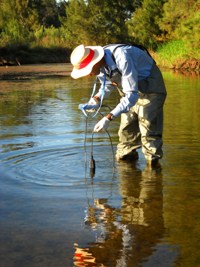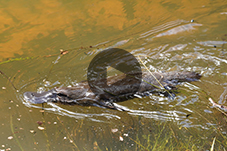River Health
What are the issues?
Much of the natural vegetation around the Hawkesbury-Nepean Catchment has been cleared for housing, agriculture and industry. With an expanding Sydney population and impacts of climate change, the problems facing the Hawkesbury-Nepean river are escalating.
These problems don’t just include land clearing. The Hawkesbury-Nepean Catchment is also suffering from pollution in the water, which harms and kills many of the animals and plants that call the river home. Chemical and nutrient run off from residences, farms and industries, as well as treated waste, flow into the river, causing a variety of adverse issues not only for the river’s ecosystem, but also the people that inhabit the surrounding area. Excess nutrients like Nitrates and Phosphates cause eutrophication, leading to increased algal and aquatic plant growth, which reduce the rivers flow and decreases the amount of dissolved oxygen in the water (hypoxia). Such issues can cause things like blue-green algae, which when bloom, release toxic chemicals that harms all kinds of life, or excess terrestrial weed growth on the riverbanks, which impacts the quality of the habitat and the flow of water itself.
Between pollutants and the excess of water that is drawn from the river for human use, the waters’ natural flow has changed and lessened. Consequently, there is now less water to regularly flush the system of pollutants, like algae and nutrients, exacerbating and sustaining all these issues in a vicious cycle.
What is water quality?
Water quality is defined by its chemical, physical and biological characteristics. It is a measure of the condition of water relative to the requirements for use.
The quality of water in lakes, rivers and oceans, vary significantly due to differences in the environmental, ecosystems and human impacts. The quality of the water not only affects our uses but also affects fauna and flora, both aquatic and terrestrial. Water quality is very poor in some catchments, negatively affecting people and communities that rely on the river for food, now no longer being able to eat the fish they catch or use the water for stock such as cattle.
The water quality of a river is largely dependent on what the land surrounding the catchment is like – is it agricultural, urbanised, or bushland? Water quality is also a product of biological processes within the water itself (in-stream processes), such as the flow rate, aquatic life and the temperature.
Why is water quality important?
Water is the key ingredient for all life, both human, animal and plant life. In addition, it is of major environmental, social, and economic significance to NSW, and underpins the development and success of much of our infrastructure and modern way of life.
If water quality is diminished, it is not only the environment that suffers. The commercial and recreational value of our water resources will decrease, as many businesses and industries rely on healthy waterways to operate. From prawn and oyster fisheries downstream, to recreational users like water skiers, and farmers drawing water for stock and crop irrigation, there are countless areas that will be negatively affected if the health of the Hawkesbury-Nepean River is not maintained.
As a major source of our local economy and central to our communities, the rivers health and its influences are far reaching, it is very important that we look after this natural resource.
Mobile options:




